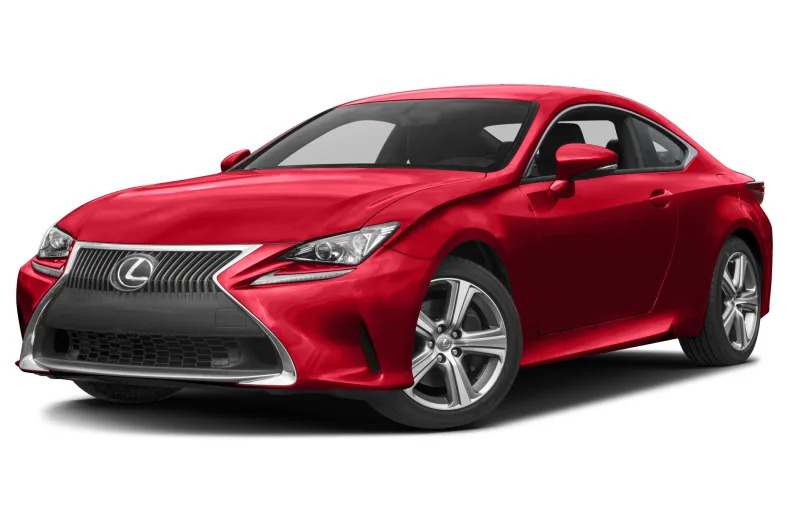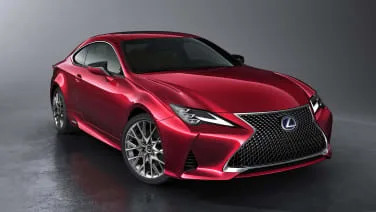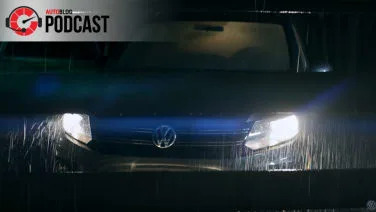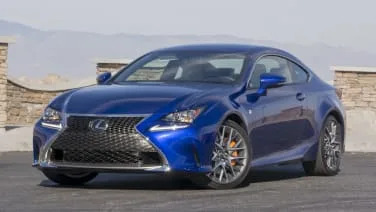2016 Lexus RC 200t
Cars like the BMW 4 Series, Cadillac ATS coupe, and Audi A5 exist not as volume cars, but as aspirational products designed to draw in the young and the young at heart. The humble four-cylinder turbo, offered in each car listed above, provides an accessible point of entry for lifestyle buyers that want the statement of a sporty coupe without the eagerness, fuel inefficiency, or cost of a big six-cylinder engine. Now, Lexus is throwing its hat in the ring with a turbocharged version of its polarizing RC coupe.We took the new RC 200t out for a day on the winding roads of the Pines to Palms Highway near Palm Springs, CA, and found that while Lexus' new engine will draw new customers, they probably won't like what they find.Driving Notes The RC joins the IS, GS, and NX as members of Lexus' four-cylinder turbo clan. There's 241 horsepower and 258 pound-feet of torque on offer here, numbers that compare favorably with the BMW 428i (240 hp and 260 lb-ft) and Audi A5 (220 hp and 258 lb-ft). None of that matters, though, because the turbocharged RC is easily the slowest car in its class. You'll struggle to keep pace with stuff like the Hyundai Veloster Turbo. The RC 200t somehow takes 7.3 seconds to get to 60 miles per hour. That's a second slower than the A5, and over half a second slower than the 4 Series or Cadillac ATS. You can't drive a car that looks as wild as this and take that long to get to 60. Blame it on the RC's 3,737-pound weight. Lexus only saved 11 pounds by switching out a 3.5-liter V6 for the 2.0-liter turbo. The BMW and Cadillac both weigh well under 3,500 pounds. Even the RC's four-door fraternal twin, the IS 200t, is 150 pounds lighter (and only takes 6.9 seconds to get to 60). The RC needs a diet, plain and simple. If Lexus truly wants to compete against the Germans and Cadillac, a snappier transmission is in order. Like the GS we talked about yesterday, the Aisin eight-speed is fine on upshifts – it's still not as fast as the 4 Series' ZF eight-speed auto – but it suffers when it's time to change down. Around town, it's less of a problem, but on the twisty mountain roads outside of Palm Springs and on the freeways, the RC's gearbox kept tripping over itself. We'd love to see what the 2.0-liter turbo engine could do in a lighter car, because it's a real charmer. The broad 1,650-to-4,400-rpm torque peak gives drivers a lot of space to play, although the RC does feel flat-footed as you crest 5,000 rpm. The RC acquits itself well at speed, too, responding to sudden throttle inputs with a surge of power (once the transmission decides to serve up a lower gear). Mid-range punchiness is easily this 2.0-liter's best feature. The RC's acoustics are smooth and pleasant, but more importantly it sounds realistic without being intrusive. …
Full Review
Cars like the BMW 4 Series, Cadillac ATS coupe, and Audi A5 exist not as volume cars, but as aspirational products designed to draw in the young and the young at heart. The humble four-cylinder turbo, offered in each car listed above, provides an accessible point of entry for lifestyle buyers that want the statement of a sporty coupe without the eagerness, fuel inefficiency, or cost of a big six-cylinder engine. Now, Lexus is throwing its hat in the ring with a turbocharged version of its polarizing RC coupe.We took the new RC 200t out for a day on the winding roads of the Pines to Palms Highway near Palm Springs, CA, and found that while Lexus' new engine will draw new customers, they probably won't like what they find.Driving Notes The RC joins the IS, GS, and NX as members of Lexus' four-cylinder turbo clan. There's 241 horsepower and 258 pound-feet of torque on offer here, numbers that compare favorably with the BMW 428i (240 hp and 260 lb-ft) and Audi A5 (220 hp and 258 lb-ft). None of that matters, though, because the turbocharged RC is easily the slowest car in its class. You'll struggle to keep pace with stuff like the Hyundai Veloster Turbo. The RC 200t somehow takes 7.3 seconds to get to 60 miles per hour. That's a second slower than the A5, and over half a second slower than the 4 Series or Cadillac ATS. You can't drive a car that looks as wild as this and take that long to get to 60. Blame it on the RC's 3,737-pound weight. Lexus only saved 11 pounds by switching out a 3.5-liter V6 for the 2.0-liter turbo. The BMW and Cadillac both weigh well under 3,500 pounds. Even the RC's four-door fraternal twin, the IS 200t, is 150 pounds lighter (and only takes 6.9 seconds to get to 60). The RC needs a diet, plain and simple. If Lexus truly wants to compete against the Germans and Cadillac, a snappier transmission is in order. Like the GS we talked about yesterday, the Aisin eight-speed is fine on upshifts – it's still not as fast as the 4 Series' ZF eight-speed auto – but it suffers when it's time to change down. Around town, it's less of a problem, but on the twisty mountain roads outside of Palm Springs and on the freeways, the RC's gearbox kept tripping over itself. We'd love to see what the 2.0-liter turbo engine could do in a lighter car, because it's a real charmer. The broad 1,650-to-4,400-rpm torque peak gives drivers a lot of space to play, although the RC does feel flat-footed as you crest 5,000 rpm. The RC acquits itself well at speed, too, responding to sudden throttle inputs with a surge of power (once the transmission decides to serve up a lower gear). Mid-range punchiness is easily this 2.0-liter's best feature. The RC's acoustics are smooth and pleasant, but more importantly it sounds realistic without being intrusive. …
Hide Full Review
Hide Full Review
Retail Price
$39,995 - $39,995
MSRP / Window Sticker Price
| Engine | 2.0L I-4 |
| MPG | Up to 22 city / 32 highway |
| Seating | 4 Passengers |
| Transmission | 8-spd auto w/OD |
| Power | 241 @ 5800 rpm |
| Drivetrain | rear-wheel |
| Curb Weight | 3,737 lbs |
Smart Buy Program is powered by 





